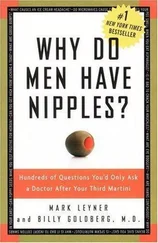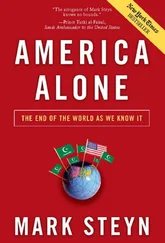CHAPTER FOUR
DECLINE
American Idyll
Looking more nearly into their features, I saw some further peculiarities in their Dresden-china type of prettiness. Their hair, which was uniformly curly, came to a sharp end at the neck and cheek; there was not the faintest suggestion of it on the face, and their ears were singularly minute. The mouths were small, with bright red, rather thin lips, and the little chins ran to a point. The eyes were large and mild; and—this may seem egotism on my part—I fancied even that there was a certain lack of the interest I might have expected in them.
—H.G. Wells,
The Time Machine (1895)
We took a whirl on H.G. Wells’ famous time machine a few pages back, riding from the 1890s to the 1950s to our own time. In the original novella, a fellow in late Victorian England saddles up the eponymous contraption, propels himself forward, and finds himself in a world where humanity has divided into two: the Eloi, a small, soft, passive, decadent, vegetarian elite among whom one can scarce tell the boys from the girls; and the Morlocks, a dark, feral, subterranean underclass. This is supposedly London in the year 802,701 AD.
That’s the only thing Wells got wrong: the date. He was off by a mere 800,690 years. If he’d set his time machine to nip ahead just a hundred or so to the early twenty-first century, he’d have been bang on target. Today, an insular myopic Eloi while away the hours conversing with the flowers, while the American Morlocks are beyond the horizon and rarely glimpsed.
These groups are not yet formally divided into vegetarian on the one hand and carnivorous on the other, but they are evolving into physiognomically distinct species—an attenuated, emaciated coastal elite nibbling arugula in Malibu and Martha’s Vineyard, while the vast bulk of people with vast bulk are confined to the intervening and less fashionable zip codes waiting in the drive-thru lane for a 2,000-calorie KrappiPounder. In his Obama hagiography, the MSNBC analyst Richard Wolffe reported that, at lunch one day, a conspicuously overweight White House aide was ostentatiously presented with a light salad by the president himself. The staffer responded that he could take care of both his health and his menu selections himself, but Obama was having none of it. “I love you, man,” said the Commander-in-Chief. “Eat the salad.” 1
As an Obama acolyte, Mr Wolffe characterized this vignette as an example of how “caring” the president is, but a whiff of aesthetic revulsion from a coercive Conformocracy hangs over the incident: I love you, man. But you don’t want people to get the impression that perhaps you’re… not one of us. In Invasion of the Body Snatchers , the conformity enforcers urged the hold-outs just to close their eyes and go to sleep. In Invasion of the Body Shrinkers , the last lardbutt in the Obama circle is enjoined to eat the salad.
Beyond the White House as within, these are the salad days of the West.
Researchers at the University of British Columbia published an exhaustive analysis of all those stories you read in the paper that begin “A new study shows that….” 2In effect, UBC did a study of studies. They found that between 2003 and 2007, 80 percent of the population sample in the studies of six top psychology journals were university undergraduates, a demographic evidently containing many persons who would rather take part in studies than study what they’re supposed to be studying. But these same psychology journals had somewhat carelessly assumed that the behavior patterns of wealthy western co-eds speak for the wider world. In other words, studies show that people who take part in studies are not that typical. The UBC paper gave a cute name to this unrepresentative sample of humanity: WEIRDs—Western Educated Industrialized Rich Democratic.
I’d have gone for Western Educated Idle Rich Deadbeats myself, but chacun à son goût . The researchers were concerned with a very specific point: How representative of humanity at large is a tranche of affluent western college students? But they may have stumbled on the key not just to “scientific” studies but to liberal foreign policy, domestic spending, and the advanced social democratic state in the twenty-first century. If you take the assumptions of almost any group of college students sitting around late at night having deep-thought-a-thons in 1975, 1986, 1998, and imagine what a society governed by that sensibility would be like, you’d be where we are now—in a western world in elderly arrested adolescence, passing off its self-absorption as high-mindedness.
How high-minded are we? After the publication of America Alone , an exasperated reader wrote to advise me to lighten up, on the grounds that “we’re rich enough to be stupid.” That, too, has about it the sun-dappled complacency of idle trust-funders whiling away the sixth year of Whatever Studies. But it’s an accurate distillation of a dominant worldview. Since 9/11, there have been many citations, apropos radical Islam, of Churchill’s observation that an appeaser is one who feeds the crocodile hoping he’ll eat him last. But we have fed the crocodile at home, too: we threw money at the Big Government croc for the privilege of not having to think seriously about certain problems, and on the assumption that, whatever we paid to make him go away, there would still be enough for us—that we were rich enough to afford our stupidity. Since the collapse of Lehman Brothers in 2008, we have been less rich. But, if anything, even more stupid.
Nevertheless, a lot of people take my correspondent’s view: if you have old money well-managed, you can afford to be stupid—or afford the government’s stupidity on your behalf. If you’re a carbon-conscious celebrity getting $20 million per movie, you can afford the government’s stupidity.
If you’re a tenured professor or a unionized bureaucrat in a nominally private industry whose labor contracts were chiseled in stone two generations ago, you can afford it. But a lot of Americans don’t have the same comfortably padded margin for error on the present scale. And, as our riches vanish, the stupidity pours into the vacuum.
In any advanced society, there will be a certain number of dysfunctional citizens either unable or unwilling to do what is necessary to support themselves and their dependents. What to do about such people? Ignore the problem? Attempt to fix it? The former nags at the liberal guilt complex, while the latter is way too much like hard work. The modern progressive has no urge to emulate those Victorian social reformers who tramped the streets of English provincial cities looking for fallen women to rescue. All he wants to do is ensure that the fallen women don’t fall anywhere near him.
So the easiest “solution” to the problem is to toss public money at it.
You know how it is when you’re at the mall and someone rattles a collection box under your nose and you’re not sure where it’s going but it’s probably for Darfur or Rwanda or Hoogivsastan. Whatever. You’re dropping a buck or two in the tin for the privilege of not having to think about it. The modern welfare state operates on the same principle: since the Second World War, the middle classes have transferred historically unprecedented amounts of money to the unproductive sector in order not to have to think about it.
But so what? We were rich enough that we could afford to be stupid.
And so we threw money at the dependent class, and indulged a gang of halfwit and/or malevolent ideologues as they hollowed out the education system and other institutions. We were rich enough to afford their stupidity.
That works for a while. In the economic expansion of the late twentieth century, average citizens of western democracies paid more in taxes but lived better than their parents and grandparents. They weren’t exactly rich, but they got richer. They also got more stupid. The welfare states they endowed transformed society: to be “poor” in the twenty-first-century West is not to be hungry and emaciated but to be obese, with your kids suffering from childhood diabetes. When Michelle Obama turns up to serve food at a soup kitchen, its poverty-stricken clientele snap pictures of her with their cellphones. 3In one-sixth of British households, not a single family member works. 4They are not so much without employment as without need of it.
Читать дальше











